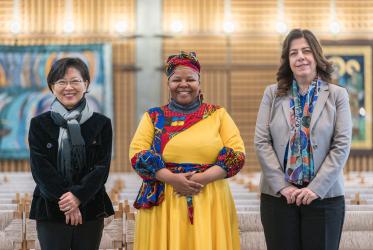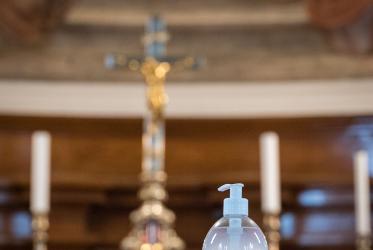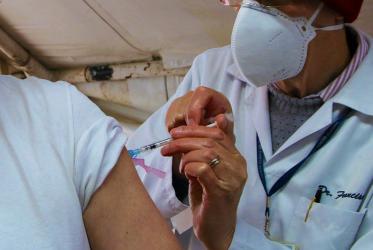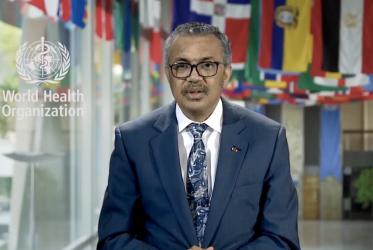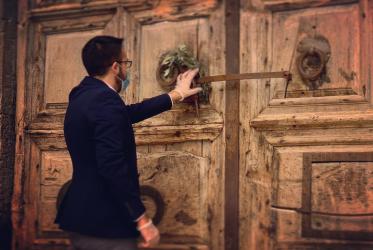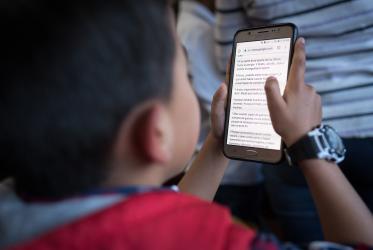Displaying 1 - 20 of 47
08 March 2024
Christian communicators urge technologies that unite
20 March 2020
Dealing with traumas and healing of wounds
04 June 2019
Faith and HIV treatment go hand in hand
06 March 2019
Turning mercy and compassion into action
04 March 2019
On the journey to HIV – bridging gaps, debunking myths
21 February 2019
#WCC70: Nathan Söderblom, ecumenical pioneer
29 August 2018
Congolese churches respond to Ebola outbreak
01 June 2018
"We have our work cut out for us"
10 August 2017
WCC students study what makes a peace communicator
18 July 2017
